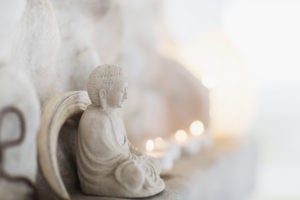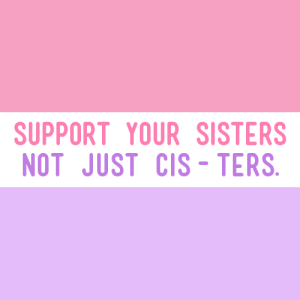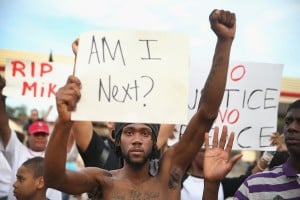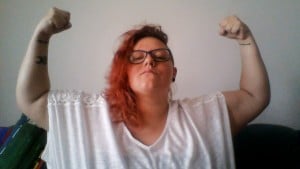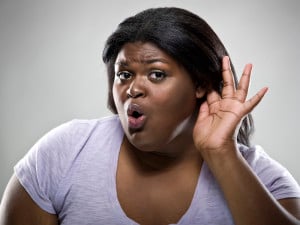
Source: Phoenix Public Library
If you’re anything like me and most of my white friends, you’re horrified by the reports of police brutality marching across the news and social media, and you really want to help. Many white people want to help.
But whether you’re completely new to state violence or had some idea things were bad, it can seem like an insurmountable task to get involved in the fight, especially if you’re a relatively privileged person.
You want to be respectful. You may, for example, understand that riding in like a white knight and disrupting the work people of color are already doing is not only unsupportive, but also patronizing and oppressive.
But as white people, we do have a responsibility to do something.
You see, we’ve got a leg up on being listened to. While we couldn’t help being born into a system of white supremacy, we can do something to help even the score.
The urge to help is the starting line, and it’s a good one.
However, when wading into anti-racist work, it pays to be careful. We need to help, not hinder, a movement that was begun, and is rightly run, by the people actually affected by racism — people of color.
If you really want to help, here are some specific things you can do that are beneficial — things that don’t involve silencing the people whose voices you mean to amplify.
1. Watch and Record the Police
When my girlfriend was driving me home from work one day, I noticed two white police officers really roughing up a black woman.
I asked my girlfriend to turn the car around, and when we got back to the scene, I stood on a nearby stoop to watch, hoping my presence would deter the cops from further roughness.
I was glad that the woman wasn’t alone, as there were 8-10 other black people already watching everything unfold.
Simultaneously, I couldn’t help but think about how dangerous it often is for people of color to defend each other against police harassment, given the consequences — violence or even death — they could face for doing so.
Despite the audience, the police quickly had the woman on her knees, in distress. She was handcuffed, clearly ill and restrained from caring for herself. There were bleeding wounds on her forehead that looked fresh.
I stayed with them, keeping right in the middle of the action, until a black cop and some EMTs arrived, and I saw the treatment of the woman improve.
The ACLU now recommends body cameras for cops, and it’s well-documented that being recorded leads to a decrease in police force.
I didn’t have the composure to grab a camera, but I hoped my presence would provide a degree of scrutiny, and I believe it did. The cops were significantly less rough with the woman after I arrived and stared at them.
My whiteness was a form of protection in this situation. The cops weren’t polite to me, but they didn’t hurt me and they didn’t arrest me — unlike Ramsey Orta, who has been harassed by the NYPD since he filmed the choking murder of Eric Garner.
2. Engage with Other White People in Discussions About Race
I have had uncomfortable conversations with my parents and some of my closest friends about race. It sucks. I hate it and people get mad and hurt and really, really defensive.
Conversations where people are forced to confront the fact that they’ve gotten an unfair advantage are hard. They’re extra hard when the person you’re talking to is a poor white person, has disabilities, or are in some other way marginalized.
It’s difficult to get past people’s initial response of “but I have problems too!” — but it can and must be done.
Lately, I’ve been having conversations about police brutality because the recent events have been accessible jumping-off points to help white people understand institutional racism.
The stark reality is that black Americans are disproportionately targeted by police — and the media does a poor job of representing this.
In Oakland, California, for example, “the NAACP reported that out of 45 officer-involved shootings in the city between 2004 and 2008, 37 of those shot were black. None were white. One-third of the shootings resulted in fatalities.”
Forty percent of the victims were unarmed, and zero percent of the cops got charged.
Most white Americans either don’t know this is happening, or they have rationalized the police’s brutal responses.
Rationalization of violence is something I come up against again and again in these types of conversations. “Black people sometimes do shitty things and white people often do nice things,” my friends and family insist.
They’ll point out that Michael Brown shoplifted or that Trayvon Martin cursed on Twitter.
This rationalization has a lot in common with the blaming of rape victims — “If she weren’t dressed that way, she wouldn’t have been raped.”
“If he weren’t smoking pot, that police officer wouldn’t have shot him.”
It’s important to understand that whatever crime someone has committed, or how much you may like or dislike them, they should never be stripped of their legal rights.
We have a right to trial by our peers in this country, and whether someone is a troll or a saint, they should not be sentenced to death by a cop without due process.
(Side Note: Some people, including me, think that no one should be sentenced to death, ever. However, for now, I’m working strictly within the confines of our legal system, where it is lawful to kill someone, but not before they have been tried and convicted.)
The fact that some Americans are executed without a trial should scare and horrify us.
Even though it’s painful and it’s personal and it doesn’t always work, engaging in these conversations with other white people is vital. This article does a good job of explaining why it’s important to engage with fellow white people who hold racist views.
Just like shutting down misogyny and rape jokes, challenging racism breaks the culture of implicit acceptance. It shatters the illusion that everyone is ok with racism.
3. Fight for Voting Rights
Disenfranchisement of minority voters is a huge and pervasive problem.
Gerrymandering — manipulating the boundaries (of an electoral constituency) so as to favor one party or class — is rampant today, as are laws known collectively as “voter disenfranchisement laws.”
Laws that make it difficult or illegal to vote early, laws that require difficult-to-acquire or expensive ID documents, and laws that require polls to close early are all ways that conservative legislators have tried to minimize the number of minority voters who are able to cast ballots.
More unbelievable still is that voter intimidation — such as when an employer or supervisor threatens a person’s job if he votes for a particular candidate or party against the wishes of the company or union — is not uncommon.
In 2012, billboards were raised in predominantly black and Latino neighborhoods declaring, menacingly, that “voter fraud is a felony.”
This crap has been happening from the moment black people finally won the right to vote.
One of the first ways racist lawmakers tried to keep black voters away was to administer “literacy tests,” where a white official decided whether the black person applying to vote was or wasn’t “literate.”
Although voting sometimes seems like it doesn’t make a difference, it’s hugely important, especially on the local level.
Local prosecutors, superintendents, mayors, and other elected officials have immense power over what rules and regulations are created and upheld in communities.
Use your power as a white person to fight against racist voter disenfranchisement laws. One good way to do this is to volunteer to register people to vote.
4. Money Is Power: Support Black Businesses
Lend economic support to black enterprise and patronize black businesses (not businesses that exploit and profit from black culture). Get involved in Better Business Bureau politics and advocate for fair representation.
Attacks on black businesses are as old as black businesses themselves.
For example, even when black people tried to create new communities outside the racist South, they faced vitriol and violence. When they tried to settle in Oregon, for example, they were flogged. Later, they were red-lined by banks and lenders.
This is an excellent article about how hard it was for one black woman to spend money only at black-owned businesses for one year — and how important the experience was in highlighting issues of economic inequality in her community:
Oh, the worst thing was what we learned about economies in black neighborhoods. We assumed, just like other little ethnic enclaves like Little Italy or Greek Town or Chinatown, that for predominantly black neighborhoods, all the black businesses there would be owned by the local people. But easily over 90 percent of the businesses on the West Side — and it’s the same way all over the country — are owned by people who are not black and do not live in that community.
Lack of black access to enterprise is a real problem when it comes to safe and healthy communities — no money means significantly less resources to invest in the infrastructure of your neighborhood.
Further, in order to truly address white privilege, we need to acknowledge that white people have more economic power.
As the author of the article points out, she is unusually privileged to be able to seek out black-owned businesses to support. It’s mostly on white people to throw our economic power into evening the market for black businesses.
If you, like me, live in an area where black-owned businesses are few and far between (cough, cough, Vermont), shopping online is a good way to economically support black business.
Here’s an excellent list of online businesses owned by black women. It’s also good policy to support black entrepreneurs who are trying to start their own businesses — check out blackstartup.com for ideas.
5. Get Involved in Anti-Racist Work
Since graduating from college, I have advocated for anti-racist policies in the organizations I’ve worked for whose mission did not explicitly include anti-racism.
Anti-racism work was never my focus, nor did I study it in college, but I have been able to relatively easily combine my social justice passions with doing anti-racist work.
My generation is far from the first to do anti-racist work — from Quakers who participated in the Underground Railroad to white civil rights’ activists, many white people have often disagreed with white supremacy.
There is an important place for white people in the anti-racist movement: as support workers, warriors of justice, advocates.
There are so many ways to get involved. Pick one, or two, and give them your time and energy. Support employees in your organizations who do anti-racist work. Support your friends and family members who do anti-racist work.
Make the world easier for people to succeed while doing anti racist work.
***
White supremacy and racism are holding us all back from creating a truly level playing ground.
Racism has always been a tool of the powerful to set the less powerful, poorer whites against the less powerful blacks. Everyone is affected in a country ravaged by economic inequality.
By lending our support to black businesses, fighting for true voting equality, and keeping the police in service of the people — not the state — we’re creating the possibility of an America where your lot is not as cemented by your race and social class.
[do_widget id=”text-101″]
Wiley Reading is a Contributing Writer at Everyday Feminism. Wiley is a New Jersey-born artist, writer, environmentalist, and social justice advocate located in Burlington, VT. He works as a community health worker for the Greater Burlington YMCA, and writes for Disrupting Dinner Parties, a small collective feminist blog. In his free time, Wiley draws bugs and old buildings, loves every show on the Food Network, makes creative (read: pulled from the recycling) toys for his bunnies, and tipsily reminds every person in every bar that New Jersey is the best state. Follow him on Twitter @wreadinggo.
Search our 3000+ articles!
Read our articles about:
Our online racial justice training
Used by hundreds of universities, non-profits, and businesses.
Click to learn more
Most Read Articles
- « Previous
- 1
- …
- 30
- 31
- 32






